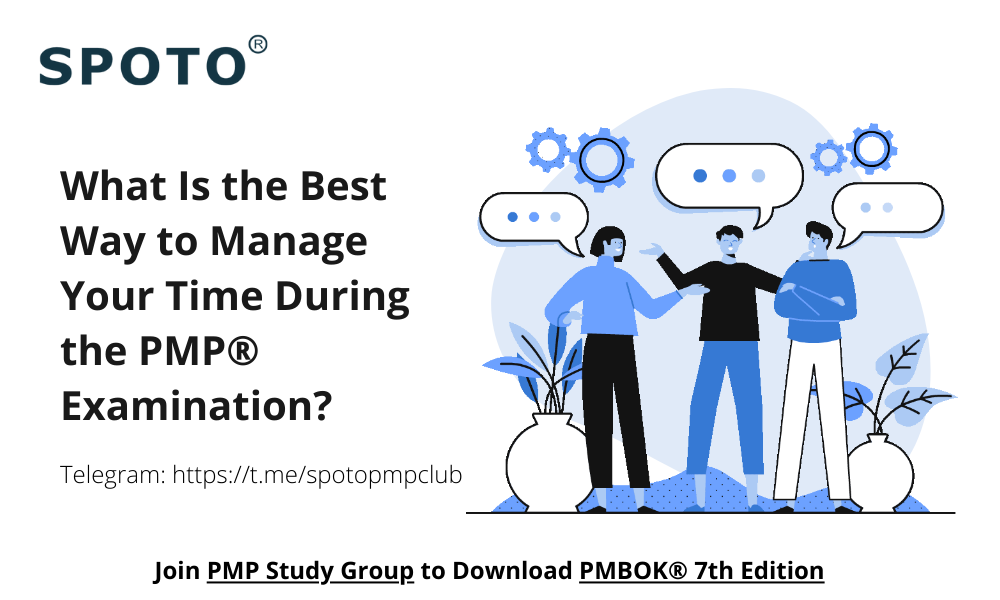Success on the Project Management Professional (PMP®) test requires more than just knowledge; it also requires confidence. Confidence is more than just feeling good about oneself; it anticipates future success based on numerous iterations of success in the past.
Time management is one of those areas where you can attain achievement. Time is an important limitation on the exam, and your main ally is controlled. As you use time management techniques in your practice sessions, you will have a better chance of properly managing time during the actual exam, bringing less stress and greater control.
You can manage time in two key ways: at the exam level and the question level. You may also combine these simple strategies to develop a comprehensive approach that is simple to implement and replicate. Time is not your adversary; when actively handled, you will feel at ease with the constraint and successfully use the time to benefit you the most.
Do you want to improve your project management skills? Take SPOTO project management certification course today to advance your project management career.
1. Exam Time Management
You must handle the entire four hours and consider it a four-hour buffer (think “critical chain” and project buffer). Each question deducts 1.2 minutes from the buffer until you run out of questions at the same time you run out of time.
Each question has a time limit of substantially less than 1.2 minutes.
- However, keep in mind that you will need to make time for breaks (the stopwatch will NOT stop while you are taking breaks)
- It is also a good idea to set aside some time near the end of the exam to go through all of the questions (ideally not just those marked for review) to catch any careless errors.
- Because each question carries the same weight on the exam paper and there are 15 pre-test questions (frequently harder or outside of the PMP® Exam syllabus), it is strongly advised to set a strict time restriction for answering each question.
- After considering all of the variables, aspirants may have 50 – 60 seconds to answer each exam question as to the hard limit.
2. Control Question Time
Each question, no matter how difficult or easy, deserves 1.2 minutes. Allow yourself a few seconds to decide whether the question seems complicated. This is not a waste of time; when done effectively, it sets the stage for the question to be answered quickly. It will help you to discover questions that are simple for you early on, so you know you’re reserving extra time for the more tough ones.
When treating your entire time as a reserve, it may be advantageous to discover a way to transfer the most difficult questions to the end. This is referred to as a ‘mark for review.’ Usually, you will answer questions in order, and when you submit them, they are finished and will never be viewed again. When you use the ‘mark for review’ option, you bookmark the questions and answer them at the end.
A decent rule of thumb to follow is to not mark more than 30 or 40 questions for review. If you do, you will almost certainly run out of time. Another sensible strategy is to choose an answer before marking it for review. When you mark a question, the answer is saved, and if you run out of time, these marked questions are graded as well (and, of course, your chances are better than if they were left blank).
3. Allow Time to Compose the Brain Dumps
Many PMP® Exam centers no longer allow writing during the exam teaching time before starting the actual exam.
You will also need to allow extra time at the start of the exam to compose your brain dump, saving you a significant amount of time throughout the exam.
4. Take Two to Ten-minute Breaks to Relax
Take a few moments to look over the question paper and mentally set the target. If you get stuck on a question, don’t get too worked up over it. Remember that you have a maximum of 1.2 minutes to respond to that question. If you go over your time restriction, please disregard that question.
5. Guess an Answer and Move on ASAP in Case You Are Not Good at Calculation Questions
- It may be a good idea to guess all of the calculation questions without even reading the question, choose an answer at random, mark them up for review, and move on to the next one — this will give you more time to tackle those questions you are confident about, which will boost your exam confidence (guessing answers will not get negative marks if wrong).
- After completing all of the exam questions, return to those calculation questions, which you may find easier to do now that you have gained confidence.
- (In theory) It is also better to predict the same response choice for all of these questions, as the chances of getting the correct answer are higher.
Conclusion
It would be best to take multiple practice tests or simulators to understand your preparation level to effectively manage your time during the PMP exam. The adjustment in question type and curriculum would be difficult. Nonetheless, with the proper assistance and preparation, including SPOTO PMP online training courses and exam dumps, you should be able to pass this difficult PMP test on the first try.


Comments